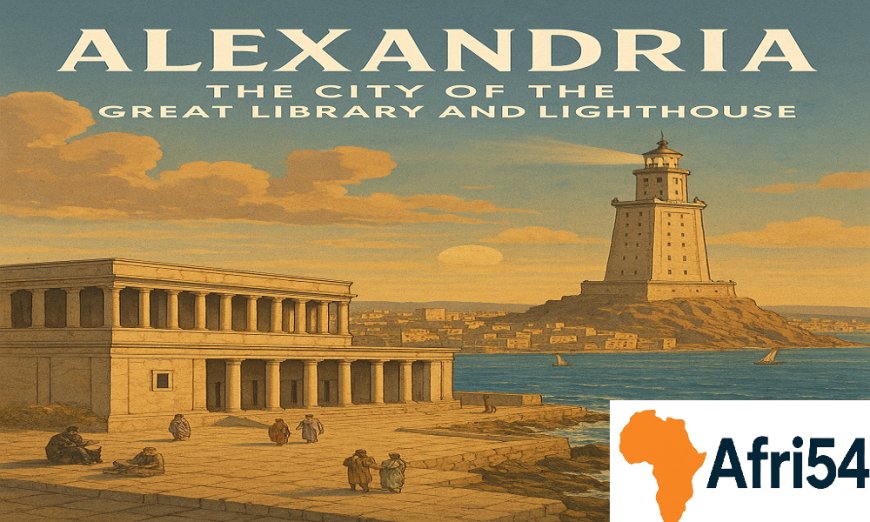Alexandria: The City of the Great Library and Lighthouse
Explore Alexandria, Egypt’s ancient city founded by Alexander the Great. Discover the legacy of the Great Library, the Lighthouse of Pharos, and its role as a hub of trade and culture.

Reading Time: ~7 minutes
On the shores of the Mediterranean Sea lies Alexandria, one of the most famous cities of the ancient world. Founded in 331 BCE by Alexander the Great, the city became Egypt’s cultural and intellectual hub, blending Greek, Egyptian, and later Roman traditions. For centuries, Alexandria stood as a beacon of knowledge, trade, and architectural marvels.
The Founding of Alexandria
When Alexander the Great conquered Egypt, he envisioned a city that would serve as both a military stronghold and a gateway between the Mediterranean and the Nile Valley. Designed by the Greek architect Dinocrates, Alexandria was laid out with broad streets, harbors, and monumental buildings. After Alexander’s death, the city flourished under the Ptolemaic dynasty.
The Great Library of Alexandria
Perhaps no institution in history is more symbolic of Alexandria than the Great Library. Established in the 3rd century BCE, it aimed to collect all the world’s knowledge. Ancient sources claim the library held hundreds of thousands of scrolls, covering subjects from philosophy and astronomy to medicine and literature.
Although the library was eventually destroyed through a series of conflicts, its legend endures as a symbol of humanity’s pursuit of knowledge. The modern Bibliotheca Alexandrina, opened in 2002, stands as a tribute to this lost wonder.
The Lighthouse of Alexandria
Another marvel was the Pharos Lighthouse, one of the Seven Wonders of the Ancient World. Built on the small island of Pharos around 280 BCE, it stood an estimated 100–130 meters tall, guiding sailors safely into the city’s busy harbor. For centuries, it was the tallest man-made structure in the world and a testament to Ptolemaic engineering.
A Hub of Trade and Culture
Alexandria thrived as a cosmopolitan port city. Goods from across Africa, the Middle East, and the Mediterranean passed through its harbors. Its blend of cultures produced a vibrant intellectual and artistic scene. Philosophers, scientists, and scholars, such as Euclid and Hero of Alexandria, contributed groundbreaking work here.
Alexandria Under Rome and Beyond
When Rome took control of Egypt in 30 BCE, Alexandria remained a vital city, second only to Rome itself. It supplied grain to the empire and continued as a center of learning and culture. Later, it became an early hub of Christianity and retained importance through Byzantine and Islamic periods.
Alexandria Today
Modern Alexandria is Egypt’s second-largest city and an important port. Though much of its ancient glory lies buried beneath the sea or lost to time, visitors can still see remnants of its past — including the Catacombs of Kom el-Shoqafa, the Serapeum ruins, and the modern Bibliotheca Alexandrina.
Why Alexandria Matters
Alexandria represents the power of knowledge, innovation, and cultural exchange. Its Great Library and Lighthouse are remembered not just as wonders of the past, but as enduring symbols of human ambition and creativity.
Final Thoughts
To reflect on Alexandria is to step into a world where learning, trade, and architectural marvels once converged. It remains one of history’s most iconic cities, bridging the ancient and modern worlds.
Have you listed your business on Afri54?
Afri54 exists to solve a fundamental challenge faced by millions of African businesses: lack of visibility. Whether you’re an automobile part seller in Lagos, a local attire manufacturer in Kigali, a coffee exporter in Addis Ababa, or a mobile phone supplier in Accra, you deserve to be seen. Join now






















